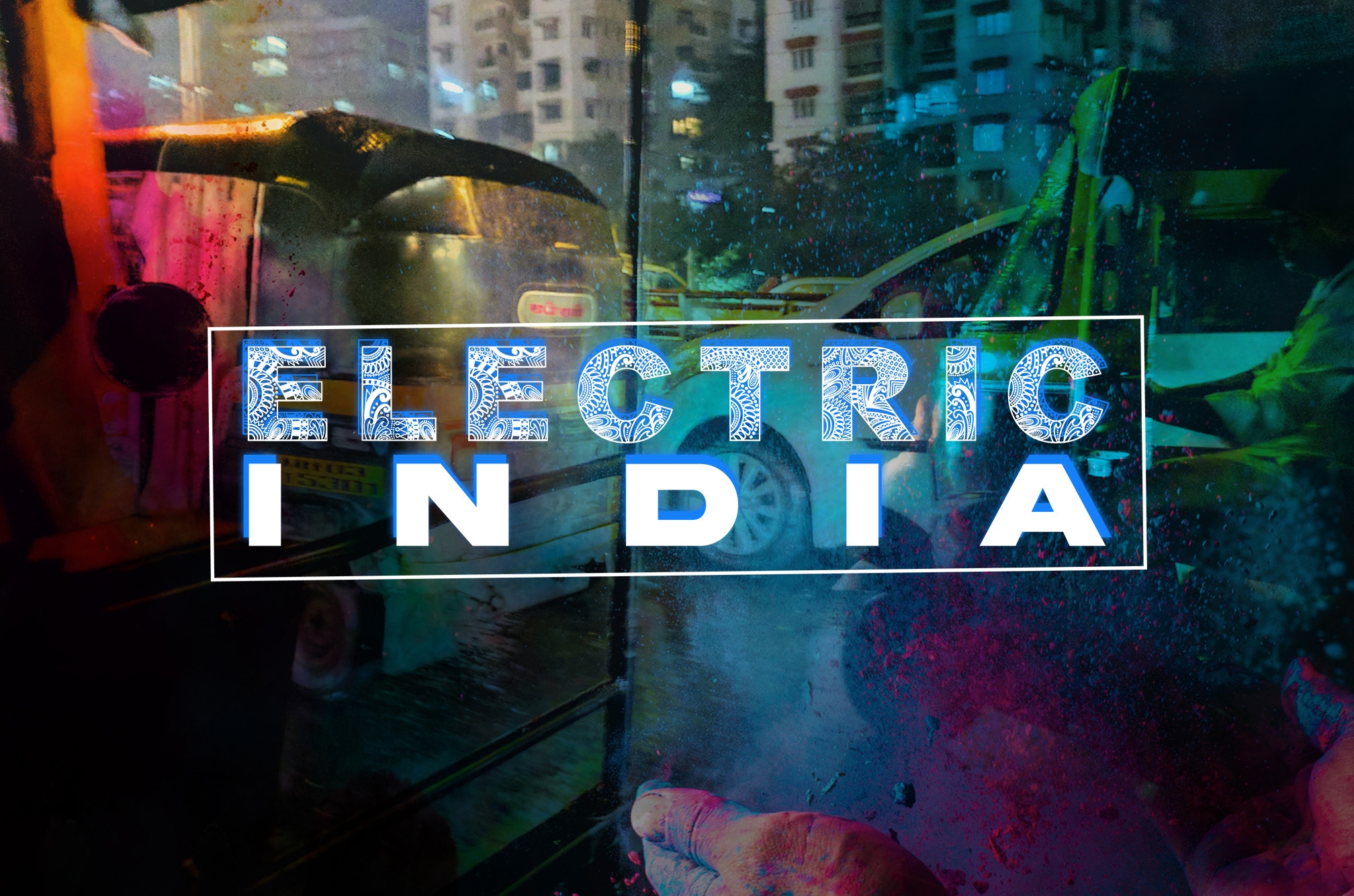 Interviews
Interviews
Electric India: Dissecting the Desi beat phenomenon with BBC Asian Network's Bobby Friction
“The dream was always to take this new hybrid music back to India"
Electric India is a new monthly feature that explores what’s bubbling in and around South Asia – from the real players in the electronic music game. From new releases, to festivals to club culture and trending artists, we go deep inside the scene and provide a monthly snapshot of the latest currents in India. From homegrown techno to imported festivals and secret parties, the music diaspora of India is so culturally unique that it deserves its own attention.
From DJs, artists and producers, their managers, festival promoters, labels, venues and other driving forces, we tap the seen and unseen from a variety of electronic and dance scenes across the country. Every city and area has its own culture and approach to music culture, some are further ahead than others — so join us as we try to figure out why they are intriguingly different and what makes them so relevant.
I got a chance to sit down with one of the hardest working men in showbiz, Bobby Friction from the BBC Asian Network. Besides his top-rated Global Desi Beats show, he’s also a TV presenter in the UK and India, journalist, DJ and all around globetrotting man of mystery. Having cut his teeth early in the UK’s ‘Asian underground ‘scene, he continued to set trends and push boundaries with his eclectic/electric DJ sets before joining forces with fellow presenter Nihal for the Beeb’s first-ever British Asian Radio 1 show. At the forefront of the burgeoning urban Desi hip hop phenomenon, he was one of the first to bring the sounds to India and champion a new wave of UK artists. So many big records have been broken by this man, either in clubs or on the air, that he really has become the Desi Don of South Asian electronic music. So let’s get to it…
Bobby, you’ve been around for pretty much the lifespan of modern electronic music in India. How has it changed since the first wave of ‘Asian underground’ sounds?
“The first wave of ‘Asian underground’ sounds was very emblematic of that era in that it was inextricably intertwined with club culture of the time. Drum ‘n’ bass nights and house music nights all worked in symbiosis with the ‘Asian underground’. Since then however, electronic music has infected just about every South Asian genre globally from EDM now reigning supreme in Bollywood, electronic beat sensibilities being used in the Indian hip hop scene, right through to an expansive and multi-faceted home-grown electronic scene within the sub-continent. Even traditional folk music is mostly semi- electronic now. What really turns me on is the complete smashing of any rules within South Asian music at the moment. The influence of those early days mixed in with technology as a tool of liberation means some of the most exciting music in the world right now is being made in India, Pakistan etc.”
You were part of the ‘Asian underground’ scene from London in the late 90s. As a British Asian DJ, was it always a dream for you to bring the sounds back to the motherland?
“As a second-generation Indian growing up in the United Kingdom the links were always pretty strong with the motherland, as even though we were creating this new hybrid identity and culture, we still could only draw on ideas in the UK & India. The two countries loomed large within us. The dream was always to take this new hybrid music back to India, and not in a colonial way, but out of love. I have always loved India so much and respected its culture so immensely that any work I've done there, from my initial Friction compilations on Sony, to my massive support of Indian hip hop right now has been to say thank you to the people and to make my ancestors proud.”
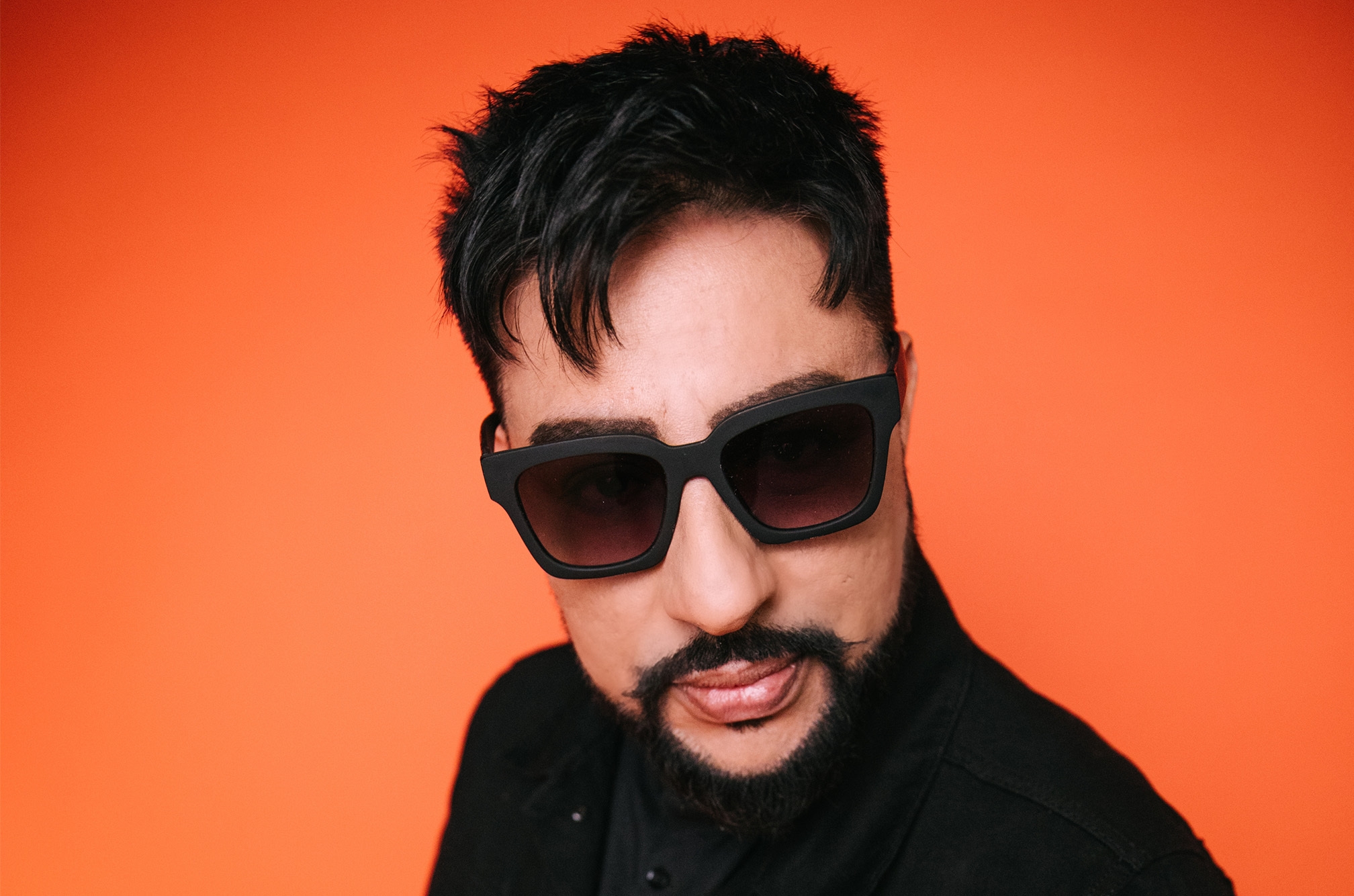
When we first met you were doing your Ecostani project and it had a really unique sound. Can you tell us a bit more about the sound direction?
“At the time the whole mission was to be as experimental and insane as possible. Every moment we spent in the studio was about celebrating electronic music and South Asian music, but actually subverting the ‘Asian underground’ scene too. The project finished pretty quickly after I started on Radio 1 where my time became dedicated to the radio show plus my partner, The Infinite Scale, also had his solo projects to work on. I look back now and wish we'd carried on as a duo but the work we both had to do outside of Ecostani was calling out to us so sadly there hasn’t been any new Ecostani material in the last 17 years!”
When you and Nihal started your groundbreaking BBC Radio 1 show ‘Bobby Friction and Nihal’, the game was starting to shift away from drum ‘n’ bass and breaks to bhangra-influenced hip hop. What was that like for you as a DJ and presenter?
“It was an amazing time for me. I had literally dreamt about becoming a DJ on Radio 1 who played South Asian music since my teenage years, and especially after I started DJing. I became convinced that Radio 1 needed a South Asian music show, and through a series of bizarre coincidences and good fortune I got the slot alongside Nihal. The show started in October 2002 just as the mainstream press were changing their focus from Asian drum ‘n’ bass and electronic nights to bhangra and hip hop culture, which was fine with me as I had started out in the music industry working for a bhangra magazine and a bhangra promoter. In fact, I had my feet in both musical camps which didn’t endear me to a lot of musical snobs at the time, but I now realise was great training for the job at hand.
Those were heady times...the show started a year before Punjabi MC took the sound overground with his worldwide hit ‘Mundiyan To Bach Ke (Knightrider)’, and within 12 months of the first show, Rishi Rich, Jay Sean and Juggy D entered the UK Top 10 and Canadian artist Raghav became a mainstream act too. Personally, I felt all the work I'd been doing my whole life led me up to these moments and for a couple of years I was DJing across the globe and living a pretty rock star lifestyle! I didn't realise it at the time but all the hard work we were putting into the radio show was just training me for the real job...my BBC Asian Network show!”
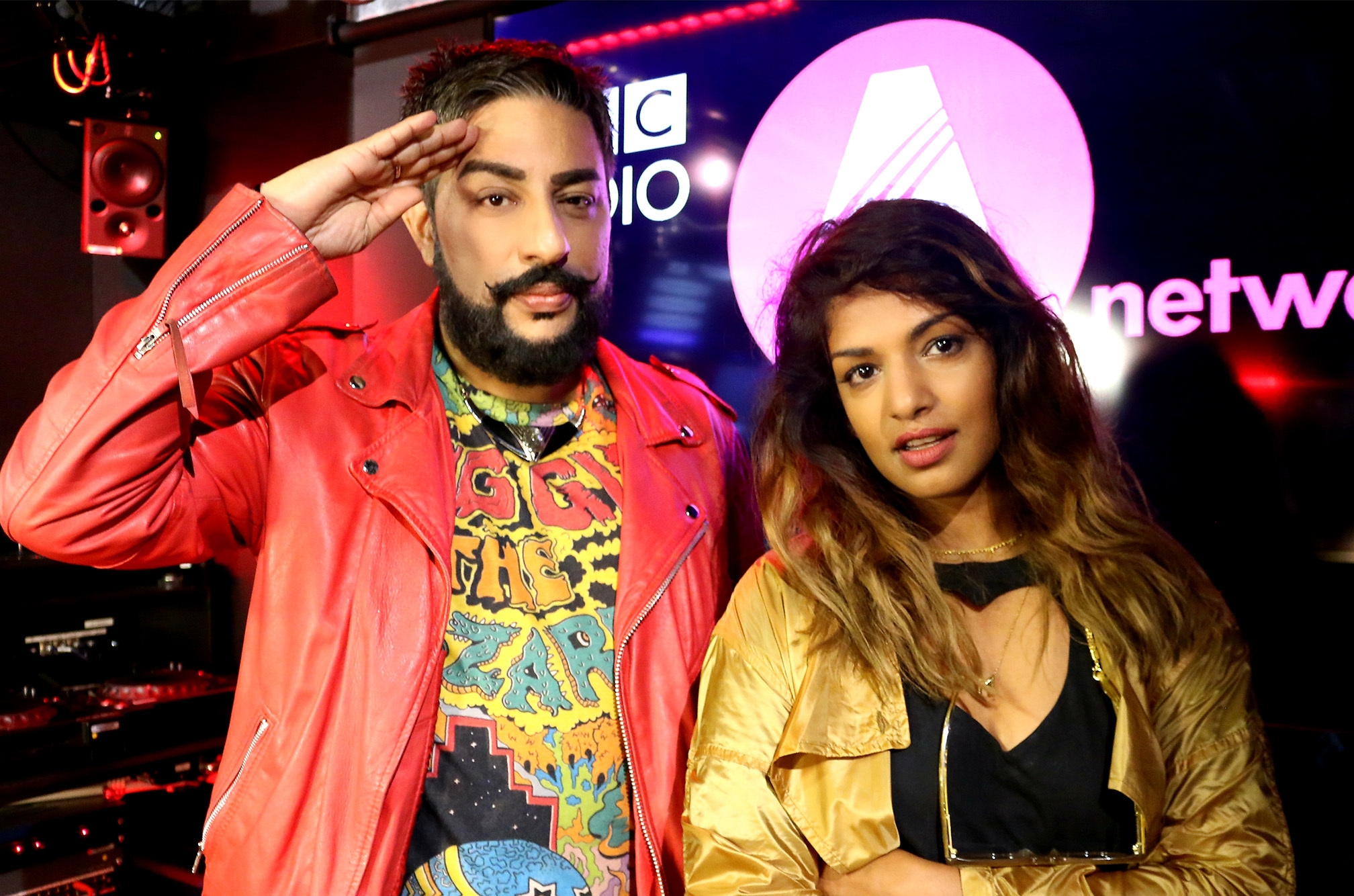
After your Radio 1 show you started at the BBC Asian Network, and soon became arguably the voice of urban and electronic Desi music. How did that scene grow so quickly (to the point that Indian sounds even became part of American hip hop for a while) and what’s kept it growing?
“Honestly, the growth went hand in hand with the emergence of new technology at around the time I started my Asian Network show. Software and music technology was just becoming affordable to everybody at any income level, plus home hardware like laptops were becoming as powerful as professional studio computers, and this changed everything. I must also point out the changing demographics of the South Asian diaspora over this time too. The second generation of US and Canadian North Americans were coming of age and had a lot to say and to create at the time too. All of that mixed in with the easy availability of smartphones, which helped artists with working class backgrounds in South Asia itself connect with the global South Asian music scene putting even more creativity into the mix.”
What was it like for you to see the explosion of hip hop in India that happened around 2016 with the rise of Hindi-rhyming MCs, which was subsequently followed up by the Bollywood hit film ‘Gully Boy’?
“I'll always have a soft spot for Gully Boy after getting a cameo role in it! I always knew that hip hop felt like the right genre to explode out of India because the DIY culture that permeates hip hop is literally the same DIY culture that keeps India running. Mix that all together with hip hop’s historical role as a voice for the voiceless, and the marriage of music culture and politics that it represents, and the rise of Indian rap music is a foregone conclusion. The other thing that people often overlook is rap’s obsession with word play, slang and linguistics. India has all of that in abundance, possibly even more so than any other country on the planet. What really excited me was to see India do this by itself, and not looking to the diaspora for support. I now meet young musicians and MCs born in the west who see their grandparents’ homeland as a country they would want to move to because of the ridiculously healthy music scene.”
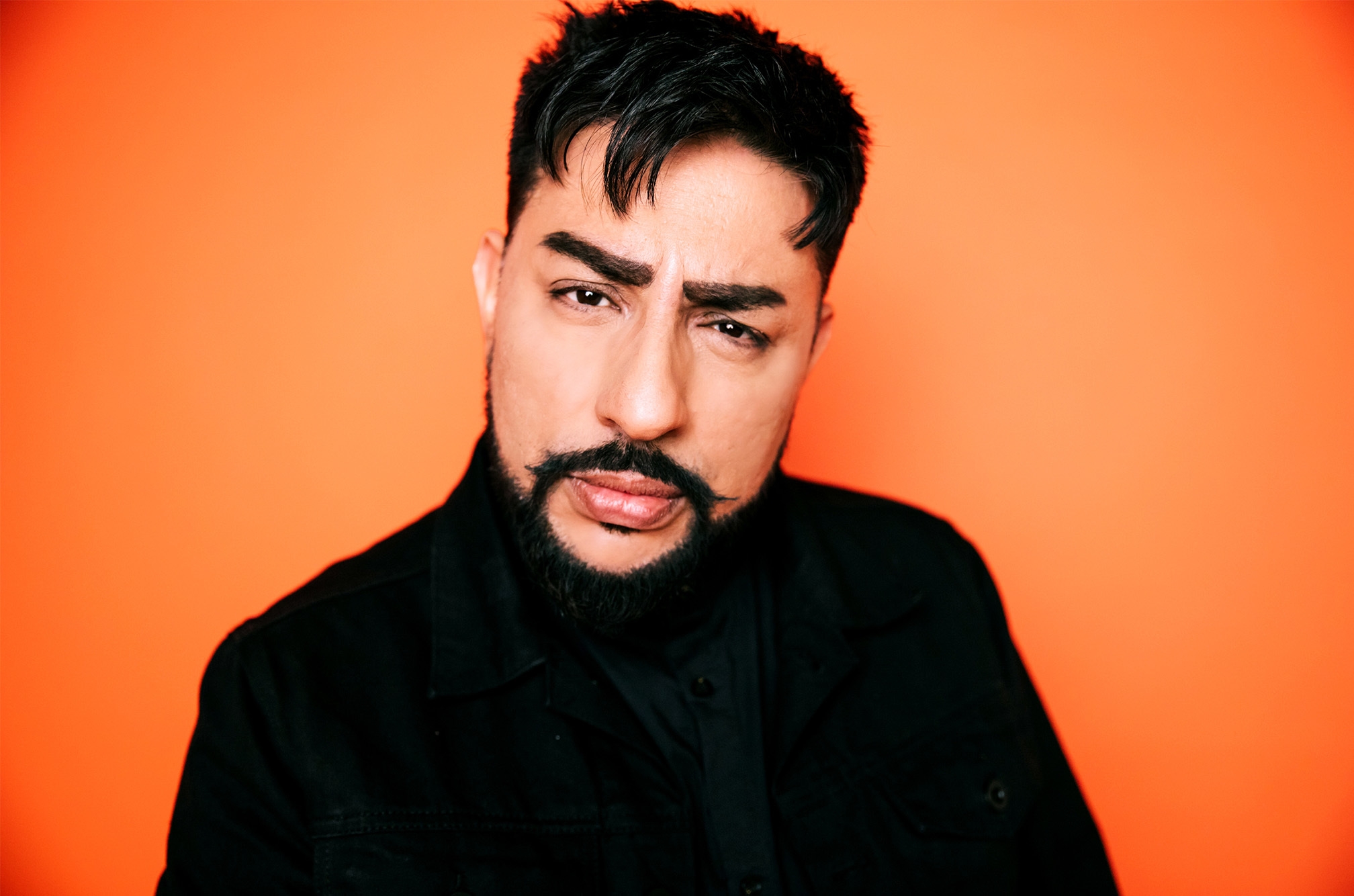
Tell us about being a judge on last year's televised Indian rap battle show ‘Hustle’?
“Amazing show, amazing homegrown talent and SO MUCH FUN! Sitting on that judging panel alongside people who I gave their first radio plays to, was actually surreal. Raftaar, Nucleya & Raja Kumari are all amazing talents who deserve the world, and I've been supporting all of them since day one. Now that they are all huge names and established artists in their own rights, I kind of felt like a proud parent watching them do their stuff and they treated me with so much respect I felt embarrassed! The level of talent on that show from the rappers individually fighting for the crown was unbelievable too.”
Do you think the explosion of Indian hip hop, fuelled by ghetto kids rhyming in Hindi and other dialects has now bounced back to influence the British Asian rappers?
“Not massively at the moment, but I think that's because the UK is in a unique position as the homeland of grime and its own style of drill. Most UK Asian rappers look to these homegrown sounds as influences. Things are changing slightly, and I am detecting a current of respect for those rappers in India and Pakistan and Bangladesh, but it will take a lot more for a proper cross fertilisation. I know Divine has just done a collaboration with Dutchavelli and this possibly points towards a bigger future here in the UK. I see a lot more recognition of the Indian rap scene from Desis in the USA and Canada actually.”
Taking a look at the equally vibrant Indian electronic and dance music scene, where do you see that heading post COVID-19? Will the big festivals return and stay homegrown? Will hip hop and EDM merge at festivals?
“The Indian EDM scene is in a dire place whilst COVID is still on the rampage. All EDM thrives on big dance floors and outdoor festivals and I can't see any of that coming back anytime soon. Of course, the true fans will always love it, but I’ve noticed people streaming a lot more mellow EDM and other electronic sounds as the pace of life slows down during the current global crisis. With regards to hip hop & EDM merging, that is already happening in the sense that lots of Indian hip hop is using electronic sounds already. Indian hip hop is sonically multi-genre in its use of music.”
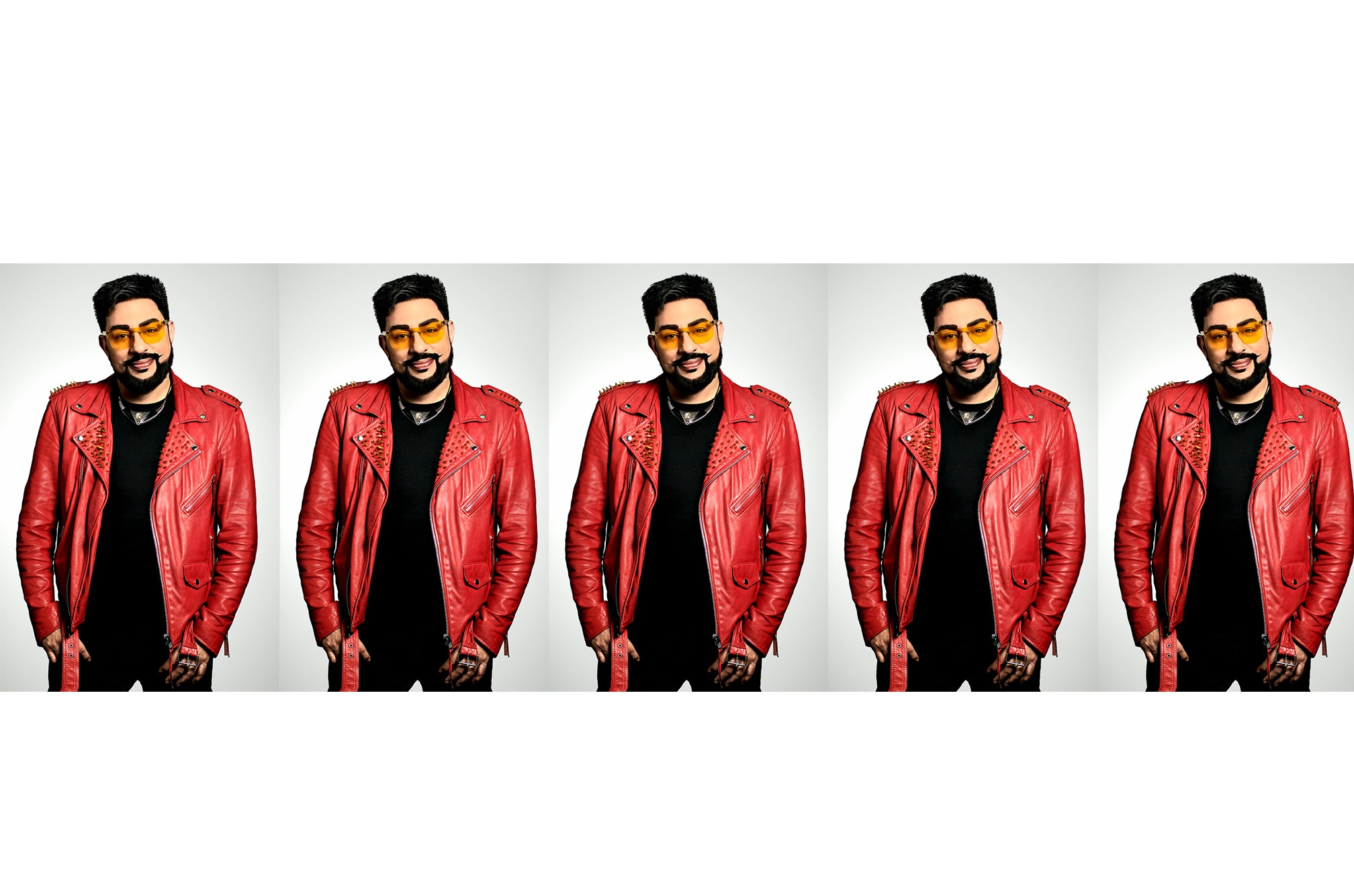
And for our special segment, we asked you to give us 5 big tunes that our readers may not have heard yet! Go!


